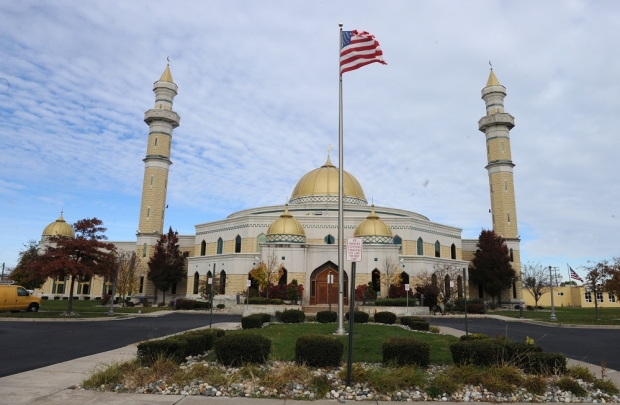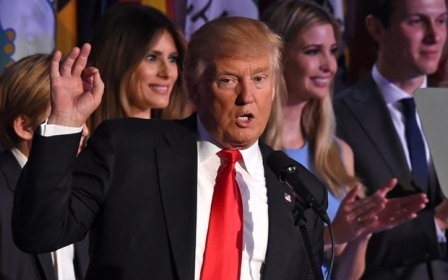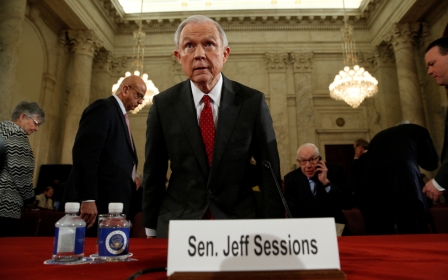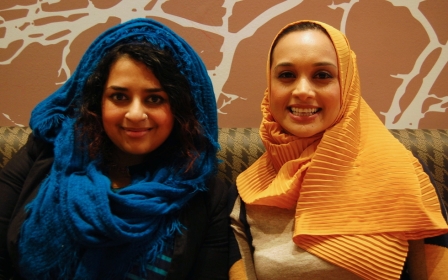US counter-extremism plan discriminatory, rights groups say
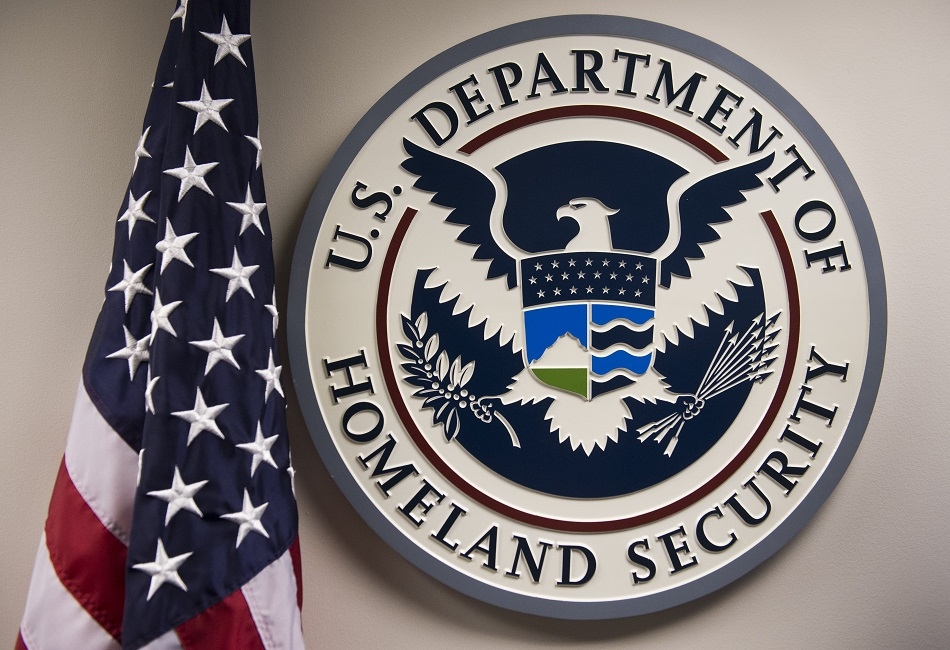
The US Department of Homeland Security raised the ire of civil rights activists after awarding $10m in grants to various law enforcement agencies and NGOs as a part of its Countering Violent Extremism (CVE) programme.
CVE’s stated mission is to address the roots of radicalisation through building “relationships based on trust with communities”. However, civil rights groups have questioned the programme and criticised it as discriminatory because it targets Muslim Americans.
In 2014, about 20 rights organisations, including the American Civil Liberties Union (ACLU), sent a letter to DHS voicing concerns about the programme.
It said CVE asks communities to report suspicious speech or associations to law enforcement.
"The result of generalised monitoring - whether conducted by the government or by community 'partners' - is a climate of fear and self-censorship, where people must watch what they say and with whom they speak, lest they be reported for engaging in lawful behavior vaguely defined as suspicious," the letter read.
Abed Ayoub, the legal director of the American-Arab Anti-Discrimination Committee (ADC), a Washington DC-based civil rights organisation, said CVE is problematic because it infringes on the separation of state and church by singling out the Muslim community.
"It is literally opening the door for federal agents and for the government to interrogate, polarise and criminalise our youth."
-Asha Noor, Take on Hate
ADC had warned Muslim and Arab groups against applying for CVE grants.
“It is forcing these organisations to essentially be informants on the community,” Ayoub told Middle East Eye. “That’s what these grants are doing… You think that money is coming for free? You think there are no strings attached to that money?”
He added that regardless of the intention of the awarded organisations, the incoming Trump administration may use this cooperation to further deteriorate Muslims’ civil rights.
Ayoub said steering away young people from extremism is an admirable goal, but it should come organically from within different communities without being linked to race or religion.
In a statement announcing the grants on Friday, DHS said CVE also works to prevent right-wing radicalisation. But Ayoub dismissed the notion as lip service, saying that the initiative is mainly about Muslims.
The Chicago-based Arab American Action Network also slammed the grants in a statement, calling on organisations to “say no to CVE”.
CVE stems from a 2011 White House policy paper titled, "Empowering Local Partners to Prevent Violent Extremism in the United States".
After the rise of the Islamic State group in 2015, the FBI launched the controversial "Don't be a Puppet" online programme, aimed at students and teachers, to help individuals from falling into extremism. Last year, Congress approved CVE grants for DHS.
'State-sanctioned Islamophobia'
Asha Noor, an advocate at Take on Hate, an anti-bigotry initiative, said CVE feeds into “state-sanctioned Islamophobia” by making it seem that the US Muslim community has an extremism problem.
“CVE states that it is not discriminatory in nature, but it is,” Noor told MEE. “It targets predominantly Muslim communities. That in itself, it reinforces the notion that Muslims are inherently violent and susceptible to ‘violent extremism’.”
She added that capacity-building and mental health assistance are needed in all communities, but they should not be funded through the lens of national security.
Noor added that the emphasis on extremism alienates US Muslims.
“It is a very slippery slope - blurring the lines between mental health and ‘violent extremism’,” she told MEE. “It is literally opening the door for federal agents and for the government to interrogate, polarise and criminalise our youth.”
Dawud Walid, the Michigan executive director of the Council on American Islamic Relations (CAIR), said CVE focuses on Muslim Americans despite a lack of evidence that their community especially needs to be watched when it comes to national security.
Walid pointed to the government’s questionable use of informants, where, he said, federal agencies use agent provocateurs to incriminate young Muslims.
“The government, on the one hand, cannot say that they want the community to work with them to stop extremists, but at the same time when they see someone with a drug problem or mental health issues, instead of directing the person to proper help, they have actually sent informants to these people to provoke them to take actions that were not already underway,” Dawud said.
Michigan has seen two recent cases where government agents were blamed for encouraging suspects to make incriminating statements relating to militancy.
In December of 2016, a man was sentenced for lying to a federal agent about plans to join Lebanese group Hezbollah. His family and lawyer say an FBI informant instigated his ordeal.
Early in 2016, Khalil Abu-Rayyan, another young man, was arrested for what the government described as an IS-inspired plan to shoot up a church in Detroit. But court documents revealed that an FBI agent, who posed as a woman showing romantic interest in Abu-Rayyan, motivated him to further pursue militant ideas.
Abu-Rayyan's attorney told a US judge that the government seduced and manipulated his client.
Walid said his case demonstrates the contradictions within CVE and other government policies.
“He is a prime example here in the area - a young guy with a drug problem who had young ladies sent at him, in what is called a honeypot to seduce him into extremism,” he said.
Dearborn
Dearborn, a Detroit suburb, has the largest concentration of Arabs in the United States. The town of almost 100,000 has also been the subject of US counterterrorism efforts, in what activists say is proof of racial profiling.
"Dearborn is the only police department in Michigan getting this CVE money. This sends a horrible sign."
-Dawud Walid, CAIR
A leaked federal report revealed in 2014 that Dearborn has the second highest number of people on a watchlist of “known or suspected terrorists” per capita among US cities.
CVE grants were awarded to the Dearborn Police Department, and Leaders Advancing and Helping Communities (LAHC), a Dearborn-based nonprofit.
Walid said organisations receiving such grants are not held to the same legal and ethical standards as the government, which allows them to be involved in self-intelligence gathering for the federal government.
“Dearborn is the only police department in Michigan getting this CVE money. This sends a horrible sign,” he said. “Within almost a century of Arabs and Muslims living in Dearborn, we can’t name a single case of a Dearborn Muslim committing an act of terrorism against the homeland.”
He said the government's targeting of Dearborn further solidifies the false perception of the city that Islamophobic advocates promote - claiming that the town, known as the capital of Arab America, is a hub for extremism ruled under Islamic law.
“Now the Dearborn Police Department is getting money to supposedly interdict so-called Muslim terrorists in the heart of Arab America,” he added.
LAHC, formerly the Lebanese American Heritage Club, has been on the receiving end of online criticism by community activists for involvement in CVE.
However, Wassim Mahfouz, the executive director of the group, categorically denied that the $500,000 grant has anything to do with terrorism.
He told MEE that the LAHC applied for the grant to fund two existing youth leadership and substance-abuse prevention initiatives.
“The programmes’ goal is to increase the youth capacity in the community, to develop resilience, to garner coalitions and protect vulnerable individuals from engaging in violence,” he said. “We’re talking about activities that focus on building skills, assisting youth with developing strong social and emotional well-being.”
Mahfouz dismissed the accusations that CVE money recipients, including the LAHC, are unofficial spies for the government.
“Spies for who? We are a human service organisation,” he said. “We’ve been around for 30 years. We have served the community for the past 30 years.”
Prevent
In many ways, CVE mirrors Prevent, a British “counter-radicalisation” programme, which has been slammed as biased and ineffective by advocates and experts.
The United Nations has criticised Prevent, saying that it narrows the margin of freedom of speech.
Last year, Maina Kiai, the UN’s special rapporteur on the right to freedom of assembly, said the policy can divide and stigmatise certain segments of the population.
“I heard reports of teachers being reported for innocuous comments in class, for example,” Kiai said during a visit to London, according to the Guardian. “The spectre of Big Brother is so large, in fact, that I was informed that some families are afraid of discussing the negative effects of terrorism in their own homes, fearing their children would talk about it at school and have their intentions misconstrued.”
Noor, of Take on Hate, said CVE is based on Prevent, which she described as a failure.
“Prevent has done more harm than good,” she said. “If CVE is designed after a programme that has failed there, why would it somehow be productive here. It has done nothing but erode trust in the Muslim community and cause disunity in our community.”
New MEE newsletter: Jerusalem Dispatch
Sign up to get the latest insights and analysis on Israel-Palestine, alongside Turkey Unpacked and other MEE newsletters
Middle East Eye delivers independent and unrivalled coverage and analysis of the Middle East, North Africa and beyond. To learn more about republishing this content and the associated fees, please fill out this form. More about MEE can be found here.


